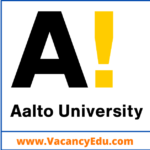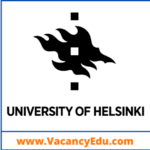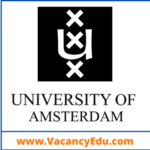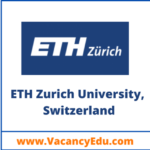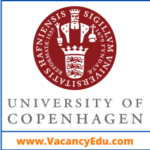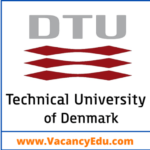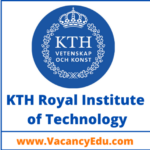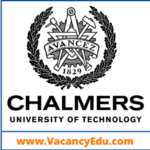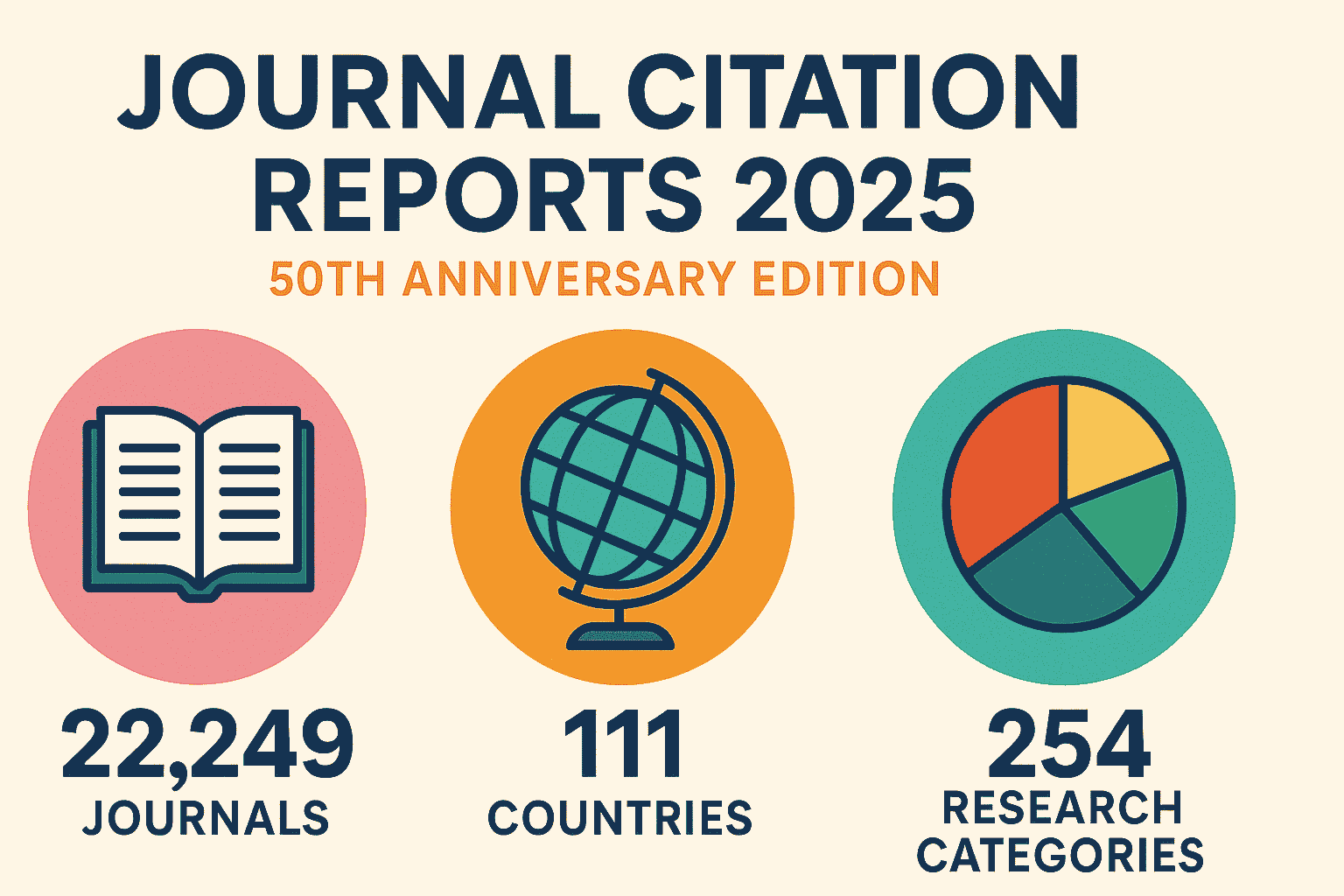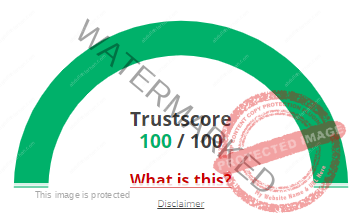Multiple Positions – 09 PhD Degree-Fully Funded at Radboud University, Nijmegen, Netherlands
Radboud University, Nijmegen, Netherlands invites online Application for number of Fully Funded PhD Degree at various Departments. We are providing a list of Fully Funded PhD Programs available at Radboud University, Nijmegen, Netherlands.
Eligible candidate may Apply as soon as possible.
(01) PhD Degree – Fully Funded
PhD position summary/title: PhD Position: Predicting the Energy Consumption of AI Algorithms
The goal of your PhD project is to develop methods to steer developments of large AI systems in such a way that they are environmentally sustainable. To this end, different designs of AI systems should be assessed during the design phase. Data flow diagrams used at NOLAI capture the processing, storage and transmission of data: key elements in assessing the environmental impact of IT systems. You can extend these data flow diagrams with the expected energy consumption so different design variants can be considered by the team working on these systems.
You will perform measurements of AI algorithms to fill in the unknowns uncovered in such a data flow diagram. The energy scalability of the core algorithms of a new nationwide AI system can be predicted using generated data sets of different sizes and measuring the environmental impact. This impact can be measured and calculated by our Software Energy Lab, which has multiple test machines with GPUs and AI accelerators.
Deadline : 07 September 2025
(02) PhD Degree – Fully Funded
PhD position summary/title: PhD Position: Cognitive Neuroscience of Social Interactions
We are seeking two highly motivated PhD candidates to join our interdisciplinary research project. One PhD position will focus on conducting a hyperscanning fMRI study, in which pairs of socially anxious individuals will engage in controlled social interactions while their brain activity is being recorded. This project aims to uncover the neural mechanisms underpinning communicative challenges in socially anxious individuals.
The second PhD candidate will investigate how socially anxious individuals regulate negative emotions that emerge during these social interactions, focusing on the ability or inability to flexibly switch between different emotion regulation strategies. As a team, the two PhD candidates will be jointly responsible for designing and setting up the studies, recruiting participants, acquiring and analysing data, and publishing the results in peer-reviewed journals. You will have a 10% teaching load and will be given the opportunity to work on your teaching portfolio for the University Teaching Qualification (UTQ).
Deadline : 24 August 2025
View All Fully Funded PhD Positions Click Here
(03) PhD Degree – Fully Funded
PhD position summary/title: PhD Position at the Donders Centre for Cognition: Neural Control
As a PhD candidate, you will join the Artificial Cognitive Systems group within the Department of Machine Learning and Neural Computing at the Donders Institute for Brain, Cognition and Behaviour. You will also be part of the Neural Control Project, which is a collaboration between Maastricht University and Radboud University. You will work closely with leading researchers in machine learning, neuroscience, experimental science, and clinical practice from both institutions. The project will be supervised by Dr Yuzhen Qin, Dr Mario Senden, Prof. Marcel van Gerven and Prof Rainer Goebel.
Deadline : 27 July 2025
(04) PhD Degree – Fully Funded
PhD position summary/title: PhD Position: Language Evolution using Swarm Robotics at the Donders Centre for Cognition
Since there are no archaeological records of early humans’ brains and words, we do not know what the first language(s) looked like, and under which pressures they evolved. This led linguists and cognitive scientists to abandon the study of language evolution for decades. Yet, with the rise of modern cutting-edge technologies, we can now use novel, data-driven methods to explore the ancient past and unpack the origin of language.
This PhD position involves developing and combining innovative tools that effectively simulate language evolution de novo and in silico in order to shed light on the pressures that drive and shape language evolution in artificial 3D environments. Specifically, this project focuses on two fundamental aspects of human language that give rise to language’s unparallel expressive power – namely its grammatical structure and our propensity to lie – and test under which social and environmental conditions these two features spontaneously emerge as beneficial and stable strategies that boost the evolutionary fitness of humans and simulated agents. By systematically manipulating the social conditions (cooperation vs. competition, solo vs. group foraging) and landscapes (poor vs. rich resource availability, clustered vs. uniform resource spread) in which humans and robots forage, you will shed light on the unique set of pressures that promote the emergence of grammar and lying in new communication systems – and map the possible ecological niches in which early humans evolved language.
Deadline : 14 August 2025
(05) PhD Degree – Fully Funded
PhD position summary/title: PhD Position: Molecular Information Processing
Scientists have speculated about the inherent potential of molecular systems for information processing since the dawn of computer science. However, the digital computing paradigm is inherently ill-suited for molecular system. Recently, we reported a major breakthrough in using chemical reaction networks for so-called in chemico reservoir computing (Nature, 2024, 631, 549–555). This work demonstrated that self-organising reaction networks and the emergent complexity in such systems form powerful reservoir computers capable of non-linear classification, times-series prediction and forecasting, on a par or even outcompeting in silico algorithms.
The ambition of this project is to expand in chemico reservoir computing to other reaction networks, especially enzymatic reaction networks. By incorporating light-sensitive groups and exploiting the inherent temperature and pH sensitivity of enzymes, we will construct chemical computers that sense their physico-chemical environment and process this information into desired outputs. Ultimately, we wish to use these chemical reservoirs as a molecular ‘brain’ that can interface with both electronic and biological systems.
Deadline : 31 August 2025
Polite Follow-Up Email to Professor : When and How You should Write
Click here to know “How to write a Postdoc Job Application or Email”
(06) PhD Degree – Fully Funded
PhD position summary/title: PhD Position: Outer Space and Colonialism
The Department of Geography, Planning and Environment is looking for a highly motivated PhD candidate to explore the social, technological and cultural dimensions of space exploration and colonisation. If you have a strong background in social sciences or humanities, with a particular interest in the study of outer spaces, we want to hear from you! You will have the opportunity to conduct independent research, participate in collaborative projects, and contribute to the geography of outer spaces.
Deadline : 21 August 2025
(07) PhD Degree – Fully Funded
PhD position summary/title: PhD Position: Social Interaction and Language Technology
The research project is part of the Futures of Language project, in which we study interactive language use as it adapts to major sociotechnical transitions. Questions we ask in the project include: What are the interactional foundations of language? How do current and future language technologies augment or exploit them? The project is interested in global linguistic diversity as a reservoir of humanity’s artisanal technologies of language, and in interactive interfaces as places where language and technology co-evolve. Many current language technologies bear the mark of a legacy that privileges text over talk, information over interaction, and algorithms over agency. In Futures of Language, we aim to understand what happens when we invert those priorities.
As a PhD candidate, you will investigate a topic at the intersection of language and technology. Your research may address questions such as how people carry out social action in interaction with human and non-human others; how pervasive technological mediation (e.g. through live translation) may affect language use and linguistic diversity; or how we can build better evaluation methods for language technology based on insights into human interaction, with room for human judgement and analysis.
Deadline : 26 August 2025
(08) PhD Degree – Fully Funded
PhD position summary/title: PhD Position: Effective Governance for Cybersecurity and Online Safety
The PhD project is part of the interdisciplinary Effective Governance for cybersecurity and Online Safety (EGOS) project, which is funded by the Dutch Research Council (NWO). EGOS is a multidisciplinary research initiative focused on advancing notice-and-action mechanisms and the role of trusted flaggers to address harmful online content and strengthen cybersecurity, with a strong emphasis on compliance with the EU’s Digital Services Act (DSA). Led by the Delft University of Technology and Radboud University, EGOS brings together academic excellence with practical expertise from a consortium of key Dutch partners, including the National Organisation for Internet Providers (NBIP), the Electronic Commerce Platform (ECP), and the Authority for the Prevention of Online Terrorist Content and Child Pornography (ATKM).
Deadline : 04 September 2025
Click here to know “How to Write an Effective Cover Letter”
(09) PhD Degree – Fully Funded
PhD position summary/title: PhD Position in Marine Methane Biogeochemistry
Eutrophication and global warming are increasing the production of the greenhouse gas methane in coastal marine sediments worldwide. Methanotrophs play a key role in removing the methane through aerobic and anaerobic microbial processes. The efficiency of this methane removal is decreasing, potentially contributing to a positive feedback loop between warming and further methane release.
We offer two PhD positions:
Position 1: Aerobic methane removal. Emerging evidence shows that aerobic methanotrophs are present and active in anoxic marine waters. In this project, you will study the role of these aerobic methanotrophs in removing methane in coastal systems and the related biogeochemical controls.
Position 2: Anaerobic methane removal. High-latitude coastal sediments are increasingly subject to an increased input of organic matter and metal oxides from land. In this project, you will study how this impacts the anaerobic removal of methane.
Deadline : 30 August 2025
About Radboud University, Nijmegen, Netherlands –Official Website
Radboud University is a public research university located in Nijmegen, Netherlands. The university bears the name of Saint Radboud, a 9th century Dutch bishop who was known for his intellect and support of the underprivileged.
Established in 1923, Radboud University has consistently been included in the top 150 of universities in the world by four major university ranking tables. As of 2020, it ranks 105th in the Shanghai Academic Ranking of World Universities. Internationally, RU is known for its strong research output. In 2019, 447 PhD degrees were awarded, and 7.571 scientific articles were published. To bolster the international exchange of academic knowledge, Radboud University joined the Guild of European Research-Intensive Universities in 2016.
Located on a green campus in the southern Heyendaal neighbourhood of Nijmegen, the campus houses 7 faculties that conduct teaching and research in Arts, Law, Management, Medical Sciences, Social Sciences and Theology, Philosophy and Religious Studies. In addition to these faculties, the campus also hosts the Max Plank Institute for Psycholinguistics, a world class research centre devoted to the understanding of human language and communication.
Among its alumni Radboud University counts 12 Spinoza Prize laureates and 1 Nobel Prize laureate, Sir Konstantin Novoselov, the discoverer of graphene. Other notable alumni include former Prime Minister of the Netherlands Dries van Agt, former chairman of Unilever Marijn Emmanuel Dekkers, influential priest and theologian Henri Nouwen, and First Vice-President of the European Commission Frans Timmermans. Former students have also won 3 Olympic medals since 2000 (all in rowing).
Disclaimer: We try to ensure that the information we post on VacancyEdu.com is accurate. However, despite our best efforts, some of the content may contain errors. You can trust us, but please conduct your own checks too.
Related Posts
-

09 PhD Degree-Fully Funded at Radboud University, Nijmegen, Netherlands
-

-

03 PhD Degree-Fully Funded at University of Helsinki, Finland
-

19 PhD Degree-Fully Funded at University of Amsterdam, Netherlands
-

-

25 PhD Degree-Fully Funded at University of Copenhagen, Denmark
-

23 PhD Degree-Fully Funded at Technical University of Denmark (DTU), Denmark
-

11 PhD Degree-Fully Funded at KTH Royal Institute of Technology, Stockholm, Sweden
-

30 PhD Degree-Fully Funded at Chalmers University of Technology, Gothenburg, Sweden
Read More…
Credits: VacancyEdu
Disclaimer

